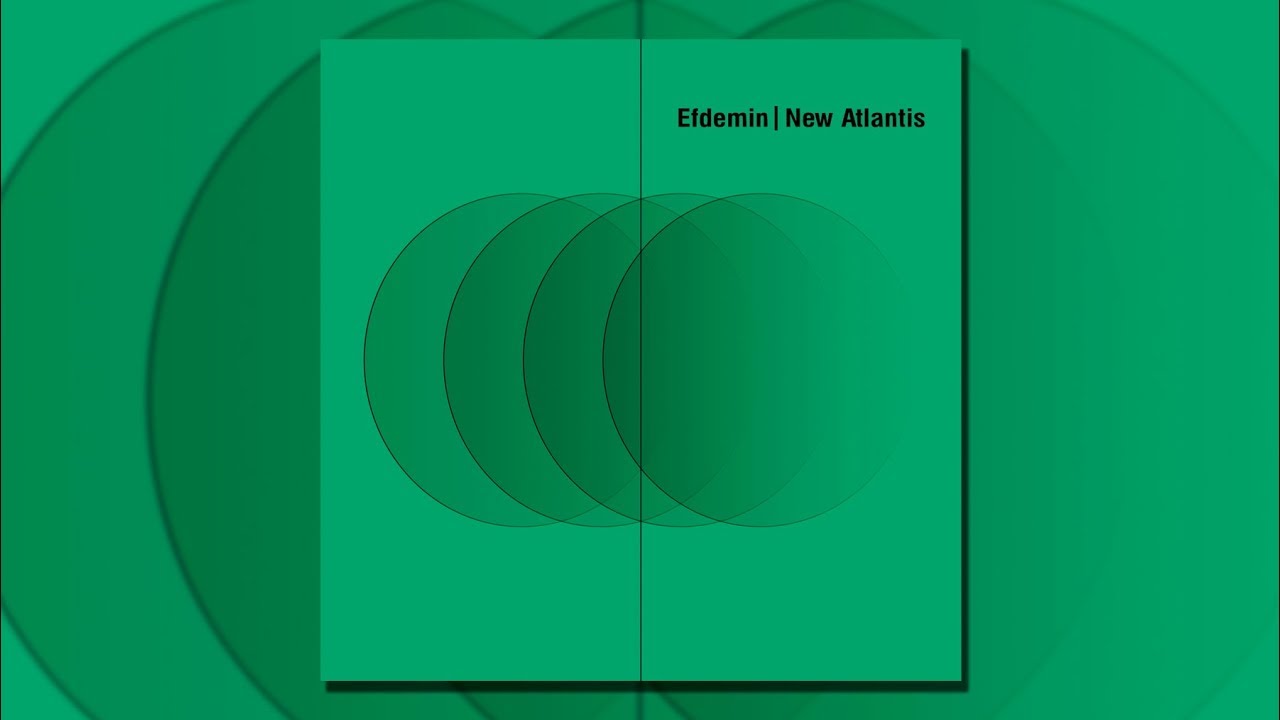The albums of contemplative techno released by Phillip Sollmann under his Efdemin moniker are cooly proficient yet warm in emotion. Favouring patient builds over cheap thrills, you’re more likely to experience them with a fuzzy glow than a racing pulse. The art he creates under his own name – from sound art and experimental music to photography and videography – is also high in quality and muted in tone.
This duty to craft is laid bare on New Atlantis. Sollman’s first overtly concept-driven project, it’s modelled on Francis Bacon’s uncompleted utopian novel of the same name. In a time where artists are frequently turning towards end time narratives, those who explore imagined worlds where things don’t spiral into inevitable shit might be written off as naff or delusional. However, as Frederic Jameson noted, “Utopias have something to do with failure, and tell us more about our own limits and weaknesses than they do about perfect societies”. Accordingly, Efdemin might be onto something, the shimmering serenity of the project laden with creepy undertones and a gnawing sense that maybe things aren’t too rosy after all.
Listening to the album, I’m reminded of the floating city of Columbia depicted in BioShock Infinite, a former beacon of American exceptionalism caged in a cult-like stupor. This comparison rings true on the opener ‘Oh, Lovely Appearance Of Death’, where American artist William T. Wiley recites Charles Wesley’s bleary-eyed, eighteenth-century hymn ‘A Funeral Hymn for a Believer’ discordantly over holy drones and similarly angelic textures, hinting at stranger things to come. While the swirling swagger of ‘Good Winds’ remains light and remarkably nimble for a drum-led production, proceedings take a nosedive into the abyss on the lead single ‘New Atlantis’, a cumbersome 15-minute sojourn that applies several freaky flourishes, namely grating drones and the hum of a motor controlled guitar, over subdued hats and drums..
The wary, time-worn decay of life runs to the core of Efdemin’s sonic utopia, from the reedy hurdy-gurdy bleats on the title track to the dark, damp intimacy of ‘At The Stranger’s House’ which appears warped and heavy despite clocking in at a jaunty 124 beats-per-minute. ‘A Land Unknown’ is haunted by minor key stabs and unsettling loops which seem to go on ad infinitum, hooking you into a grim, hypnotic state that unsettles and captivates in equal measures.
The fleeting and intense ‘Temple’ seethes with short, sharp shivers, balancing an alarming synthlead with flutes and yelps that mount in tension before reaching an abrupt conclusion. ‘Black Sun’ broods with Ostgut Ton bump before the pitch fader is brought all the way down and veers off into a sludgy, Murakami-esque alter-world filled with the arid, monochromatic textures of an Actress production. The project concludes with ‘The Sound House’, its echoey vocal samples and verdant instrumentation more suited for a campfire Kumbaya than a club night, a suitably odd yet assured ending to a mightily ambitious project that delivers more than it doesn’t.
While concept albums are lumbered with a responsibility to represent that others aren’t, Sollmann alleviates this symbolic weight with painstakingly clear purpose throughout, the lofty narrative brought to life by a collection of captivating soundscapes where visions of bliss are pockmarked by blotches of the quotidian. It rarely dips into the relentless optimism of utopian discourse but that makes this project all the more compelling; there’s trouble in paradise but Efdemin’s got it covered.



